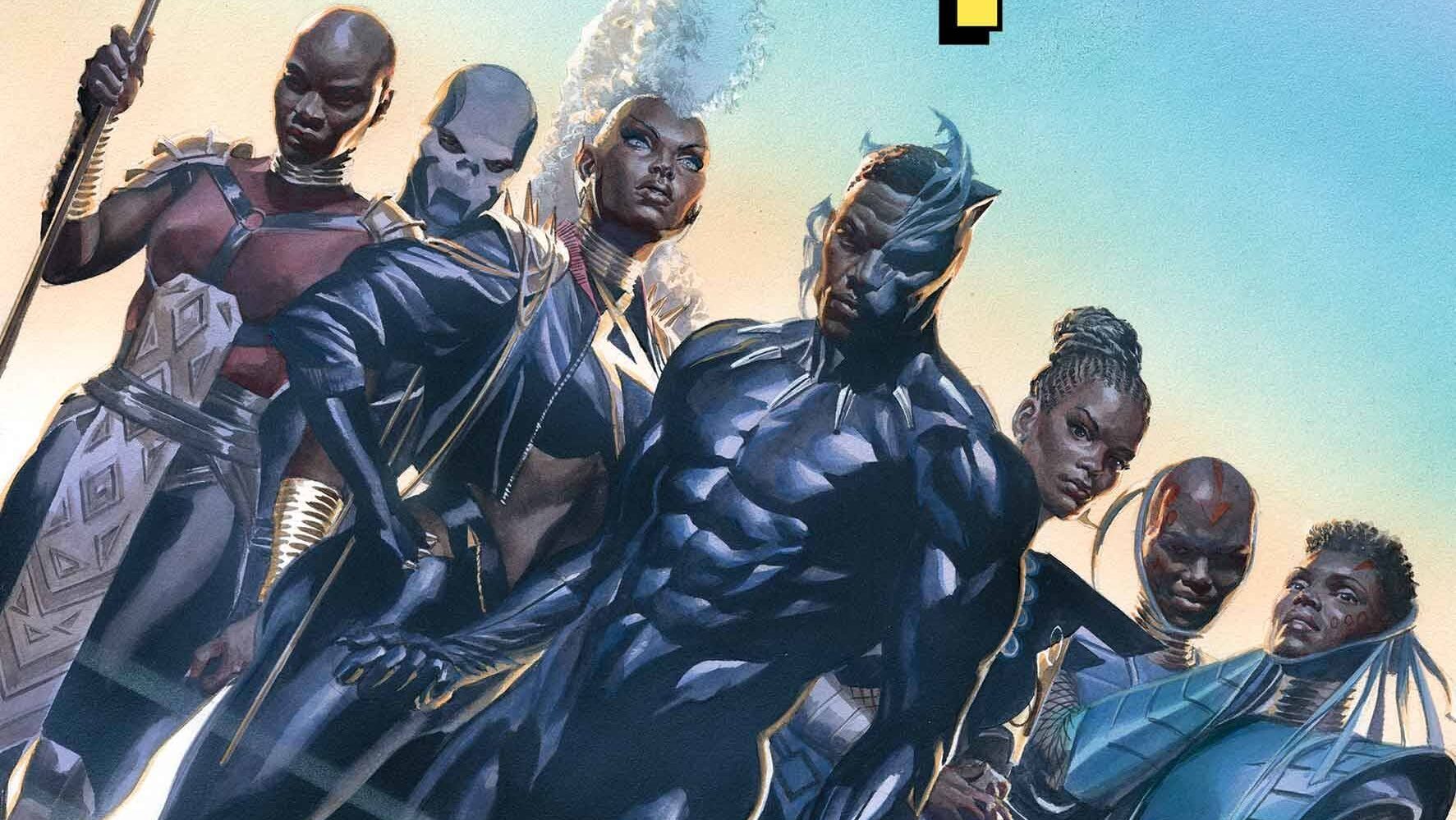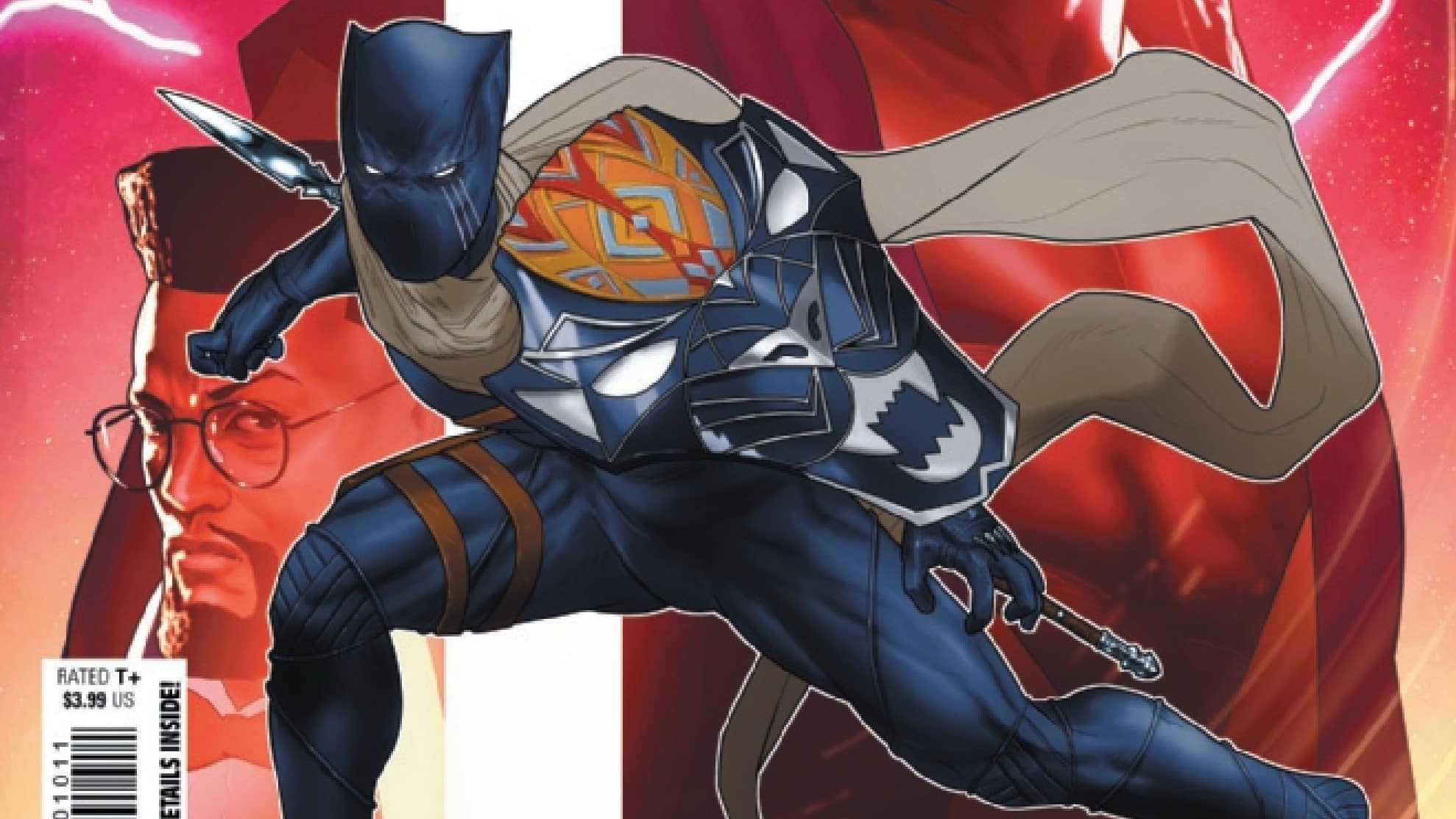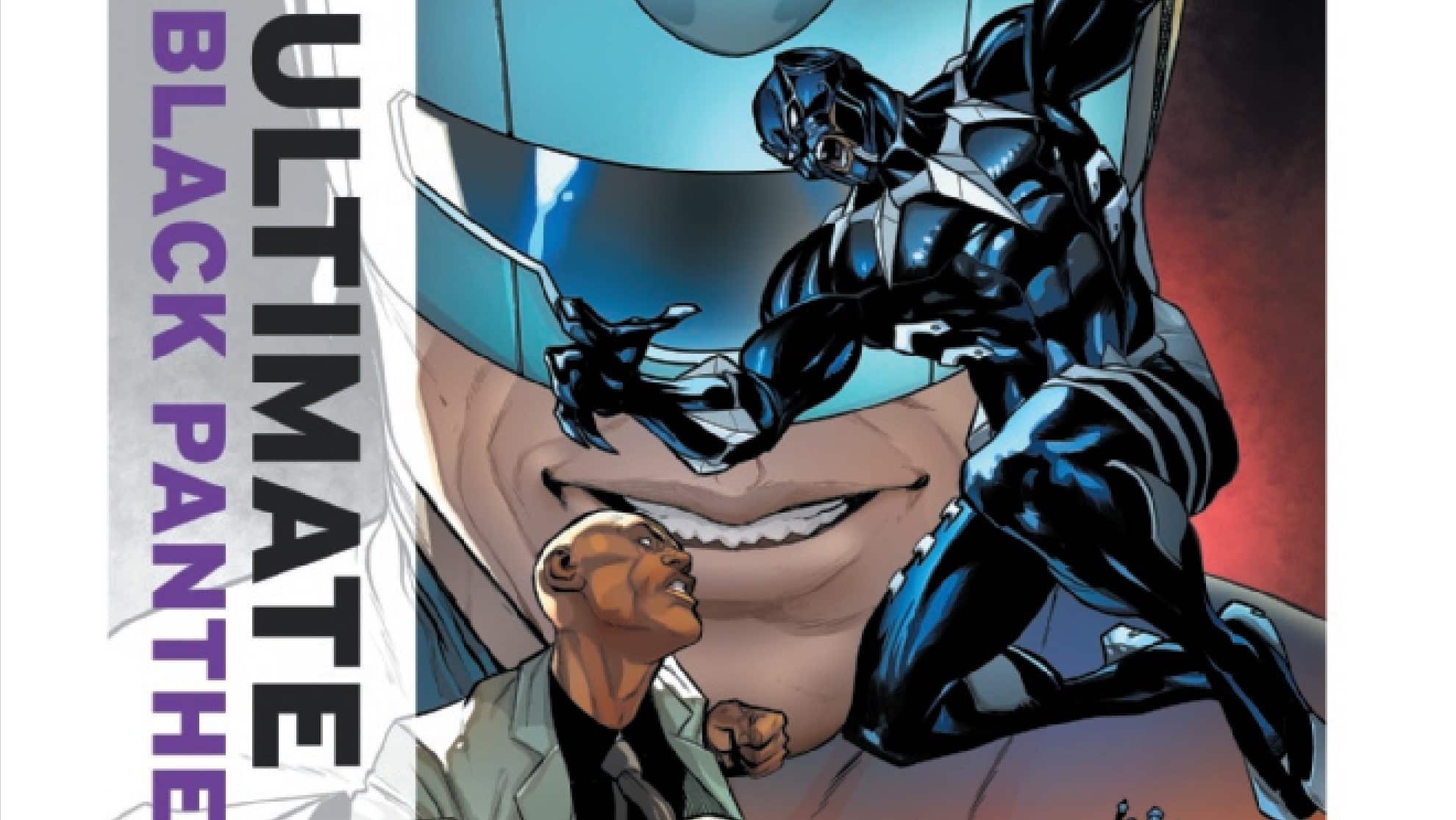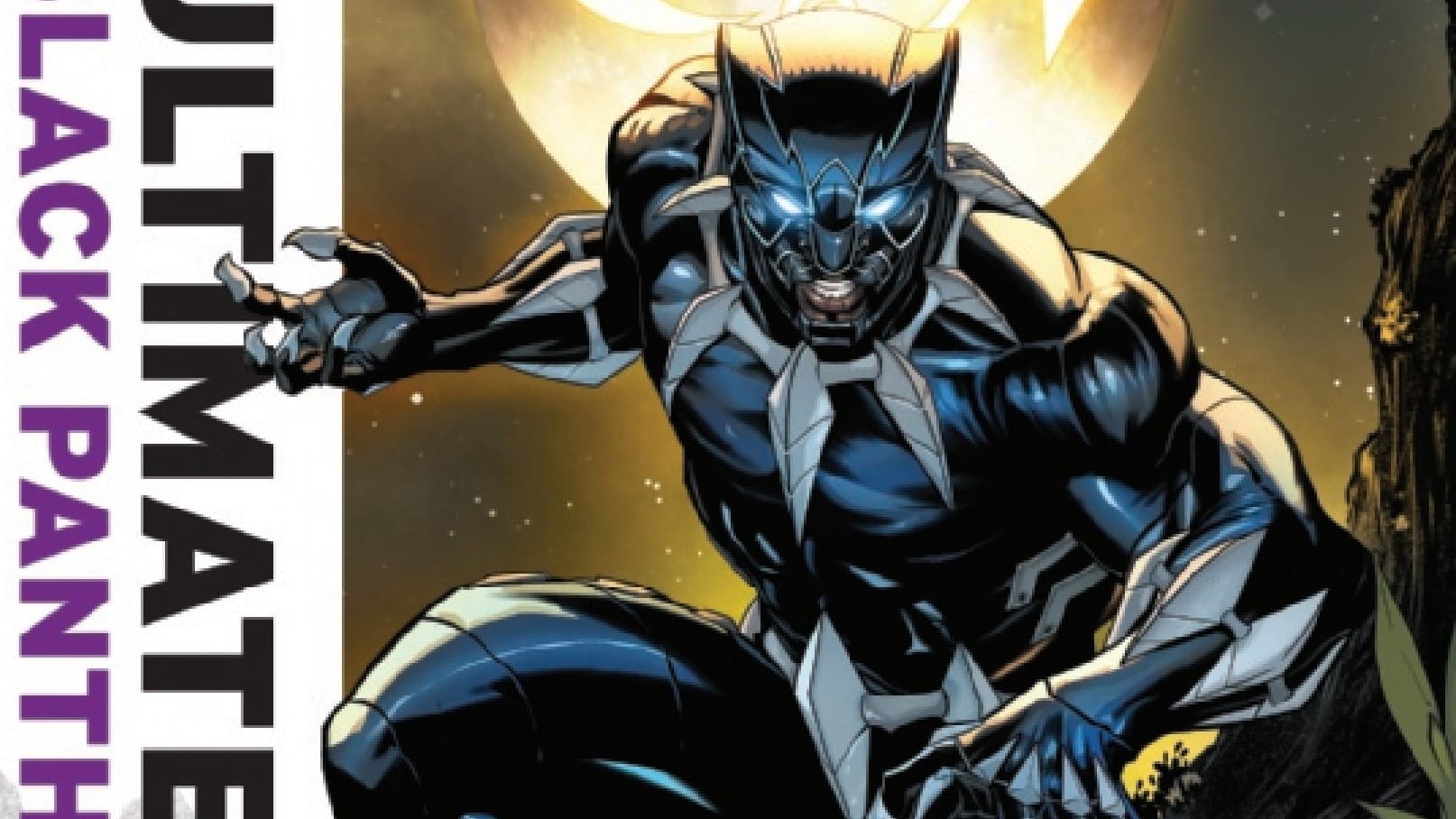T’Challa has to make major concessions to earn back the trust of the allies he’s hurt, as his enemies continue to grow their influence over his home in Black Panther #7, written by John Ridley, art by Stefano Landini, color art by Matt Milla, letters by Joe Sabino.
Humility is a good, great, necessary trait for those who choose to (or are tasked to) lead. One cannot think themselves better, different, or superior to those they wish to lead, else your leadership will eventually falter.
I say this because I don’t have a problem with leaders with humility. I do, however, have a problem with characters who lead continually being humbled. And just as I’m tired of seeing Storm, depowered, playing with knives, I’m tired of seeing T’Challa brought to his knees by hubris, forced to learn how to play nicely with others.
I’ve seen it before; I don’t need to see it ever again.
This frustration doesn’t make Black Panther #7 a bad comic. Not in the least bit. If we were in a vacuum, and this was my introduction to the character, then all of this would be fine. More than fine. Pretty darn good!
T’Challa, on the run from the government he kinda sorta lied to and escaped custody from, is granted a reprieve from death by the ladies in his life.
All of them.
From his (now, definitively) ex-girlfriend/partner/wife Storm, to his sister, to the Dora Milaje who left his side, T’Challa is forced to not only apologize for his behavior but solidify that apology with a promise: when they retake the kingdom, he will give up the crown.
Huh.
Meanwhile, Akili, the security chief T’Challa trusted from issue one, has done a full heel turn. He leads a ruthless hunt for the former king. He’s decided that the people need control, and he is willing and able to seize control – even at the cost of democracy.
(Is Akili really the big bad here, or is someone else behind the mess? I’m willing to bet it’s Jhai, back from the dead, but that’s more me noting that Akili’s defection was so easy to telegraph that it must be a misdirection. I think.)
Folasade, the Wakandan Prime Minister, realizes a bit too late that Akili is after power, and sneaks away to broadcast a message of resistance to the people – against Akili AND against a resurgence of T’Challa.
Boy, Wakanda is a mess.
Folasade is saved from certain death by Tosin, the vibranium-skinned character introduced in Black Panther #200. Tosin also, magically, appears just in time to save Shuri, who snuck back into the capital, from getting captured.
How convenient.
(Of Tosin: his inclusion here feels too much like an afterthought add-on. If you didn’t read the pre-story, then you don’t really have an idea of who he is or why his people are so wary of other Wakandans – the context-clue nuggets aren’t really enough. I wish Tosin’s back story was better integrated into this main work. Otherwise, he just feels like a Deus ex Machina mechanism, of which the character- and the readers – deserve better.)
We end the issue with T’Challa, working on behalf of the many women he’s wronged for a country whose leadership he’s ready to resign from, versus Akili and the military-industrial complex.
All of this is, again, in a vacuum, pretty good. It’s engaging; the characters speak with maturity and foresight often missing in other books. Stefano Landini’s artwork just plain works here, though I argue they’re better at illustrating action than softer, more pensive moments. Matt Milla’s colors are a mixed bag; the washed-out tones can feel a little droning at times, and all of the characters seem to have the exact same skin tone. Still, the book is good to look at, and its action is easy to follow.
But I don’t enjoy art in a vacuum.
T’Challa spent a whole 4 years being humbled, both on Earth and in space. That humility yielded him an intergalactic empire.
An empire that’s been all but absent from this comic run.
I had the pleasure of re-reading N.K. Jemisin and Jamal Campbell’s Far Sector (a pleasure you should enjoy too!) a few days back. And what stuck out to me, outside of the wonderful art and character work, was how lovely it was to break away from the known DC universe to find characters and situations and scenarios yet untold. How beautiful it was to discover new ways of appreciating life, and how those lives intertwined with what we thought we knew about the heroes and their power sets.
It was a beautiful, Afrofuturistic work. And while Black Panther doesn’t need to copy that formula exactly, it’s still a shame that the opportunity to explore new worlds hasn’t been utilized. In X-Men Red #4 (which, given his interaction with Storm, I’m assuming takes place after this caper), T’Challa implies his leadership of the Empire is custodial at best.
That the man could roam (and run!) the universe, and yet spends 7 issues of a comic confined to running from his people is frustrating. T’Challa does not need yet another lesson in leadership; T’Challa needs to lead. He can grow while still having power, agency, and autonomy.
He can still lead planets and galaxies while residing on Earth.
He can still be great AND be good.
I recognize this review may be falling into a rhetorical trap – I’m criticizing a (really good!) work because the author is not writing the comic I want. I assure you that isn’t the case. Black Panther is a very well-written, well-illustrated, interesting work. In a vacuum, it’s excellent.
I just don’t live in a vacuum. These characters have histories that don’t need repeating, and untouched stories that absolutely need telling. I can’t say what the character should do – I’m not the writer. I’m simply lamenting that all the character could do remains, frustratingly, underutilized for a path already too well-trodden.
A proud New Orleanian living in the District of Columbia, Jude Jones is a professional thinker, amateur photographer, burgeoning runner and lover of Black culture, love and life. Magneto and Cyclops (and Killmonger) were right.
Find more of Jude’s writing here.






